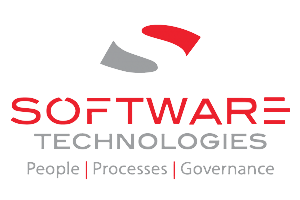If you look at some of the fastest growing economies in Africa, what sets them apart is not just the performance of the large and listed corporations but the robust and vibrant SME presence. SMEs form one of the most influential business sectors in African countries and remain the biggest contributor in accelerating economic growth.
In Kenya for instance, Micro, Small and Medium Enterprises (MSMEs) contribute to about 40% of the GDP. Additionally, SME’s also contribute massively to job creation – about 50% of new jobs created, according to a 2018 World Bank Report on High Growth Firms.
Another report by the Central Bank of Kenya also indicated that SME’s constitute 98% of all businesses in Kenya, further underscoring their importance.
Crucially, in spite of their vital role, 46% of SMEs shut down within a year of founding and subsequently 15% fail in their second year of operation. This high collapse rate remains a threat to the effective development and growth of SME’s and can be attributed to some of the major challenges facing SME’s including inadequate capital, lack of market access, lack of adopting new and emerging technologies, poor infrastructure, lack of skills, unfavourable regulations and lack of proper management.
These challenges notwithstanding, one critical enabling factor for enhancing the performance and sustainability of SMEs is corporate governance. Good corporate governance practices present SMEs with robust business processes and risk management strategies or mechanisms of responding to crises. It similarly provides a clear-cut path of employing better management practices, effective oversight and control mechanisms.
Regardless of the stage of development SMEs are in, corporate governance lays the crucial framework to ensure transparency and accountability hence making them less prone to system risks and effectively making them more attractive to investors. SMEs seeking to attract investors can thus leverage on good governance track-record as a value proposition to secure funding.

1. Instituting Proper Rules, Policies and Procedures
For SMEs to run as efficiently as possible, business founders and owners of Small and Medium Enterprises need to be clear in their vision on how the business is to be run. This is crucial in defining the strategic direction, financial expectations, roles and responsibilities of management/members, as well as clear-cut systems of achieving the organization’s goals and objectives.
2. Separation between Management and Owners
Lack of competent managerial skills has been cited in many scholarly articles as one of the banes to the growth and development of SMEs. Corporate governance makes room for the introduction of external directors away from the business owner who bring with them diversity of skills hence improve best practice methods of running the business and improving profits.
3. Board of Directors
External board members not only bring diverse skills that in turn lead to better
management decisions but can also provide an important avenue of attracting funds or resources for growth. Whereas SMEs may not have the resources to acquire skilled directors, they can put in place boards through seeking volunteer directors, offering equity as director’s compensation or recruiting board consultants on need basis.
4. Transparency and Accountability
SMEs need to establish clear communication channels and ensure timely and accurate sharing of information about their activities. Information disclosure with internal and external stakeholders creates a consistent track record infuses confidence of possible investors paving the way for attracting funding from financial institutions. Additionally, this also helps in safeguarding from internal fraud and issues pertaining to ethical liability.
5. Succession Planning
This is crucial in minimizing “key-person “risk especially in the start-up stage where the business is largely dependent on the founder in the day-to-day running of the business.
6. Proper Financial Reporting
Majority of SMEs do not do proper accounting nor have implemented international financial reporting standards. Financial reporting provides a comprehensive and accurate picture of organization operations. Timely financial statements are important for effective business management be it a large or small enterprise.
Want to learn more about our eHorizon Suite of Solutions? Call us at +254 709 609000 or email sales@stl-horizon.com
